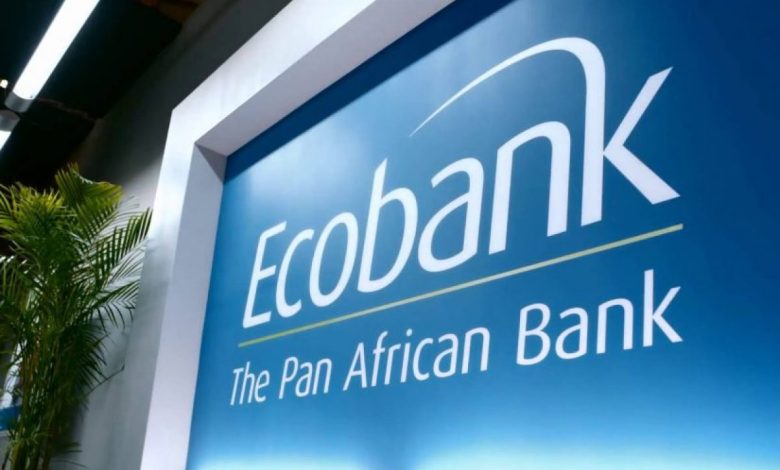Ecobank posts N146.3b profit in 2021 financial year

BY JOHNMARK UKOKO
The pan-African bank, Ecobank Transnational Incorporated (ETI) has announced a 344 per cent increase in its profit for the audited financial year ended December 31, 2021, to N146.3 billion as against N33.7 billion it recorded in the financial year ended December 31, 2020.
Details of the financial result showed that the Profit Before Tax (PBT) increased by 174 percent to N195.72 billion in 2021 from N66.6 billion it reported in the previous year.
It also showed that key factors that contributed to the group’s profit for the year under review were a 14 percent increase in gross earnings to N956.39 billion in 2020, while other operating income rose significantly by142 per cent to close at N19.1 billion from N7.91 billion in 2020.
Additionally, balance sheet deposits from customers grew by 14 percent to N917.9 billion in 2021 financial year.
Reacting to the impressive results, Managing Director and Chief Executive Officer (MD/CEO) of Ecobank Group, Ade Ayeyemi said: “The bank made significant progress with its strategic priorities and delivered strong business and financial returns.
Read Also: Challenges of tax collection in Nigeria and way out
“We grew revenue, remained efficient, improved credit quality, strengthened the balance sheet and for the first time since 2016, our board has recommended the payment of dividends to shareholders.”
Speaking further, he said: “We increased PBT by $140 million to $47.8 million, after adjusting for the $164 million goodwill charge in 2020 and generated a record return on tangible shareholders’ equity of 19 per cent.
“Net revenues were $1.8 billion up five per cent, benefitting from our diversified operating model and the continued focus on growing our trade finance payments fixed income, currencies.”
Ayeyemi, however, cautioned the shareholders that following two critical global setbacks, namely: International Monetary Fund (IMF) plans to cut global growth forecast in high inflation environment with about 60 percent low income countries at risk of debt distress and Russia’s recent invasion of Ukraine, The Trumpet gathered.
He stressed that in the mix, African economies hung in the balance as contagion risks were sure to spread.
“Already, the reverberation from these developments have forced some Central Banks in Africa to increase rates, as prices of goods and services soar and currencies are under pressure with grave security implications,” he stressed.




